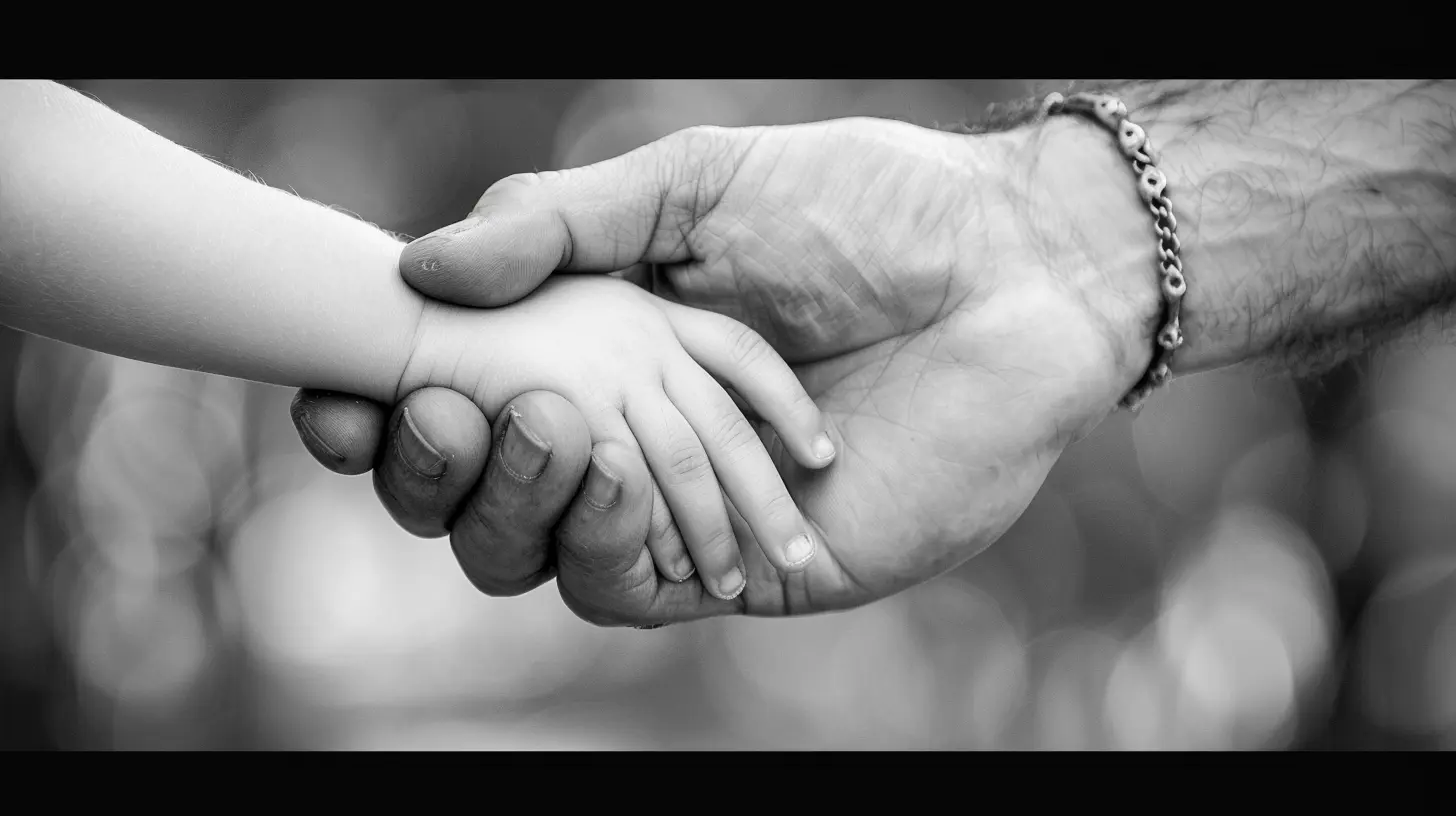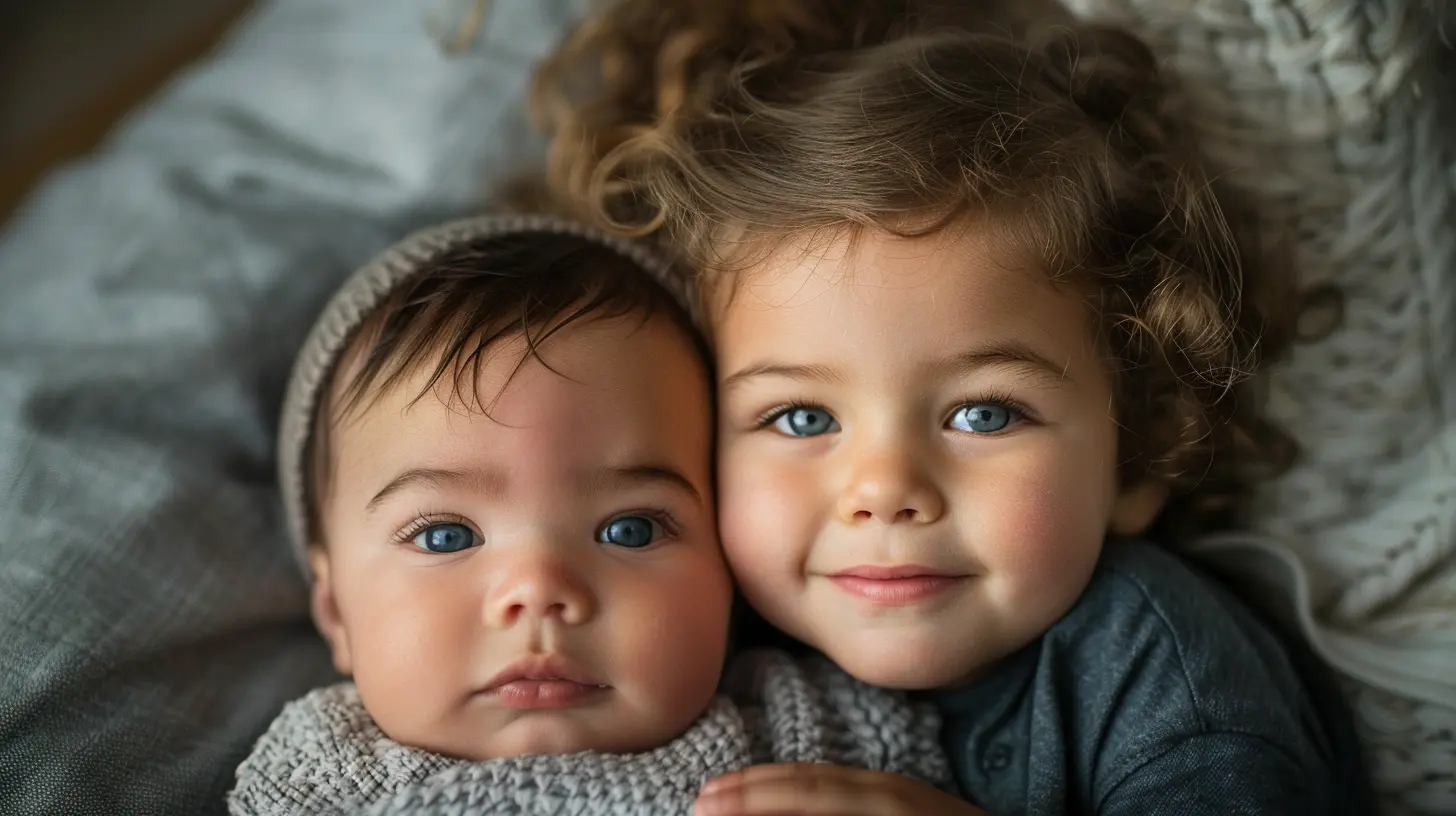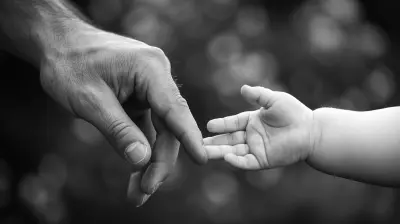The Language of Adoption: Choosing Words with Care
27 July 2025
Adoption. A word packed with meaning, emotion, complexity – and, often, confusion. Whether you’re an adoptive parent, a birth parent, an adoptee, or simply someone who’s curious, the words we use when we talk about adoption matter more than we might think. They can build bridges or put up walls. They can comfort or they can wound.
So let’s dive deep into a topic that doesn’t get nearly enough attention: the language of adoption – and why choosing our words with care is not just kind, but crucial.
Why Language in Adoption is a Big Deal
Have you ever overheard someone say something like, “She gave up her baby” or “He’s not her real dad”? If that made you flinch a little, you’re not alone. That kind of phrasing carries emotional baggage – whether we realize it or not.Words shape our world – and in the world of adoption, they can shape identities. They can influence how adoptees see themselves, how birth parents are perceived, and how adoptive families are understood by society. That’s a lot of weight for a few words, right?
But here’s the kicker: many of these phrases are used with no ill intent. It’s just what people have always said. The problem? What we’ve “always said” often reflects outdated beliefs and stereotypes.
So let’s start rewriting the narrative, one word at a time.
The Power of Positive Adoption Language (PAL)
You might’ve heard of something called Positive Adoption Language, or PAL for short. It’s a way of talking about adoption that is respectful, inclusive, and accurate. It avoids making assumptions and favors dignity over drama.Let’s break it down with some real-world examples.
| Instead of saying... | Try saying... |
|-----------------------------------|---------------------------------------|
| She gave up her baby | She placed her baby for adoption |
| Real parents | Birth parents or biological parents |
| Adopted child | Child (adoption doesn’t need a label) |
| Give a child up for adoption | Make an adoption plan |
| Illegitimate child | Child born to unmarried parents |
| Keep the baby | Parent the child |
See the difference? One set of words implies loss, shame, or judgment. The other simply reflects what happened – without extra emotional weight.
It’s like switching from black-and-white to color. Suddenly, the picture gets a lot clearer – and a whole lot more compassionate.
Why “Real Parent” Isn’t So Real After All
Let’s talk about one of the most cringeworthy phrases in the adoption lexicon: “real parent.”When someone asks an adoptee, “Do you know your real mom?” they probably mean biological. But what does that make the adoptive mom? A fake?
Yikes. That’s the kind of language that, while likely unintentional, can sting like a paper cut to the heart.
Here’s a better approach: be specific. If you mean biological, say biological. If you mean adoptive, say adoptive. Everyone involved is real. Adoption doesn’t make anyone less genuine.
The Hidden Messages Behind “Give Up” and “Give Away”
“She gave her baby away.” It sounds so simple. So...final. But think about it for a second.Imagine being a birth parent who made the agonizing choice to place a child in someone else’s arms – not because they didn’t care, but because they did. Because they wanted better. Because they weren’t ready. Because of love, not absence of it.
Now imagine that choice being described as “giving up.” See how one phrase erases the sacrifice, the hope, the emotion?
People don’t give up babies like they give up old shoes. And no child is ever “given away.” They are entrusted. That’s a profound difference.
Adoption is a Journey, Not an Event
Here’s another interesting shift: referring to someone as “being adopted” versus “was adopted.”When we say “was adopted,” it suggests a one-time event, something that happened in the past — and it did. But adoption impacts a person throughout life. So some experts and adoptees prefer “is adopted” because it recognizes that it’s still part of their identity.
But even that is up to the individual. Some adoptees don’t want their adoption mentioned at all unless it’s relevant. And that’s valid, too.
The point? Ask. Listen. Respect. Just like you wouldn’t define someone solely by their job, you shouldn’t define them solely by their adoption status either.
The Role of Media in Shaping Adoption Language
Let’s face it: movies and TV shows have a bad habit of dramatizing adoption. Think secret adoptions, surprise reunions, long-lost twins. It’s entertaining, sure — but it often misses the emotional complexity and real experiences of people living with adoption.Worse, it reinforces those harmful phrases we’re trying to move away from. Ever notice how often characters say “she gave up her baby” or “he’s not my real dad” in dramatic scenes?
These tropes don’t just entertain – they educate. Subconsciously. And sometimes, those messages stick. That’s why it's so important to support stories that showcase adoption with sensitivity and truth.
What Adoptees, Birth Parents, and Adoptive Families Need
Here’s the thing: every adoption story is unique. Some adoptees feel a strong connection to their birth roots. Others don’t. Some birth parents remain involved in open adoptions. Others step back. Some adoptive parents struggle with how to talk about adoption. Others embrace the conversation head-on.But all of these voices share one need: respect.
The language we use should honor each of their perspectives, without assumptions or judgments. And that starts by choosing our words with care.
Talking to Kids About Adoption – Mindfully
If you’re a parent, you know kids ask hard questions. Sometimes at the worst possible times – like the middle of the grocery store or in the elevator with strangers.So when your adopted child asks, “Why didn’t my birth mom keep me?” you may freeze. What do you say? How much do you tell? How can you explain something so complex in a way that reassures without sugar-coating?
The answer lies in honesty + age-appropriate language + love.
Avoid phrases like “She didn’t want you” (ouch!) or “She gave you away.” Instead, frame it as a thoughtful decision made out of love. Something like:
“She loved you very much, but she knew someone else could give you the life she couldn’t at the time. So she chose us to be your parents.”
See how that keeps the birth parent’s love at the center? That matters – a lot.
Common Missteps and How to Fix Them
We all mess up sometimes. Maybe you’ve said something like, “I could never give up my child,” only to realize that’s a loaded thing to say to an adoptive or birth parent. Don’t beat yourself up.What matters more than perfection? Progress.
Here are a few common mistakes – and how to course-correct:
- Mistake: Referring to someone as “an adopted kid” all the time
Fix: Just call them a kid unless adoption is relevant.
- Mistake: Asking someone about their “real” parents
Fix: Say birth parents or biological family.
- Mistake: Saying someone “wasn’t wanted”
Fix: “Their birth parents couldn’t raise a child at the time” or “They made an adoption plan.”
A little mindfulness goes a long way. Start small. Listen more. And don’t worry – intentional language is like a muscle. The more you use it, the stronger it gets.
Inclusive Language Helps Everyone Feel Seen
At its core, careful adoption language isn’t about being politically correct. It’s about being human. It’s about recognizing that adoption is layered, emotional, and deeply personal.Using inclusive, thoughtful language sends a powerful message:
“I see you. I respect your story. Your experience matters.”
And in a world where adoptees are still sometimes seen as second-best, where birth parents are stereotyped, and adoptive families are idealized or questioned – that message matters more than ever.
Final Thoughts: Words Can Heal, or They Can Hurt
Let’s be real — words are powerful. They can lift someone up or cut them down. In the adoption world, where every story is built on a foundation of profound decisions and emotions, language is everything.So the next time you're talking about adoption, take a moment. Choose words that show sensitivity, curiosity, and kindness. Speak as if the person you’re talking about is standing right there… because they might be.
Adoption is not about “giving up.” It’s about holding on – to hope, to love, to the belief that every child deserves a family.
Let’s speak that truth – clearly and compassionately – every chance we get.
all images in this post were generated using AI tools
Category:
AdoptionAuthor:

Steven McLain
Discussion
rate this article
1 comments
Seraphis Matthews
Words shape realities; choose them wisely to honor every adoption story’s truth.
August 3, 2025 at 3:26 PM

Steven McLain
Thank you for your insightful comment! Words truly hold power in shaping understanding and honoring each unique adoption journey.


